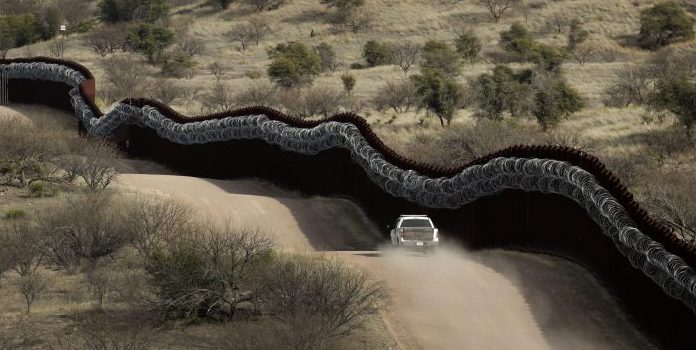(Headline USA) President Joe Biden has officially ended the national emergency that President Donald Trump declared in order to reallocate money from the Pentagon to build a wall along the U.S.-Mexico border.
The White House released a letter Thursday from Biden to House Speaker Nancy Pelosi notifying Congress that he had rescinded his predecessor’s February 2019 proclamation.
It was a formality since Biden ordered a halt to border wall construction shortly after he took office.
The decision comes as a surge of immigrants has appeared at the border, in response to the expected more lenient policies of the new president, as the Wall Street Journal reported today:
Immigration authorities made more than 78,000 arrests at the southern border in January, U.S. Customs and Border Protection said Wednesday, an increase of 6% from the prior month, raising prospects that border and asylum systems could be overwhelmed during the pandemic.
Arrests in January were the largest number that immigration authorities have recorded for any January in more than a decade.
In his letter, the president said Trump’s declaration of a national emergency had been “unwarranted” and that he had directed that “no more American taxpayer dollars be diverted to construct a border wall.”
He also ordered a review of all money spent on the project so far.
Trump made the effort a centerpiece of his first presidential campaign, vowing to build a wall across the entire border and have Mexico pay for it.
Trump took roughly $6 billion from military funds under the national emergency he declared after Congress refused his demands for wall funding, leading to the longest government shutdown in history.
The Supreme Court upheld a legal challenge to Trump’s action in a 5-4 vote in July 2019.
By the end of his administration, the U.S. had completed more than 450 miles of new wall construction along the 2,000-mile border.
Trump administration officials said the border wall slowed down smugglers and people crossing the border illegally so they could be more easily apprehended.
Critics said there were more effective tools for enforcement and that parts of the new construction damaged environmentally sensitive areas or were in places where a wall wasn’t needed.
There were also private landholders who objected to having their property seized for the project.
As of Jan. 15, the government had spent around $6 billion of the nearly $11 billion in work it signed contracts to have done.
Adapted from reporting by Associated Press.

